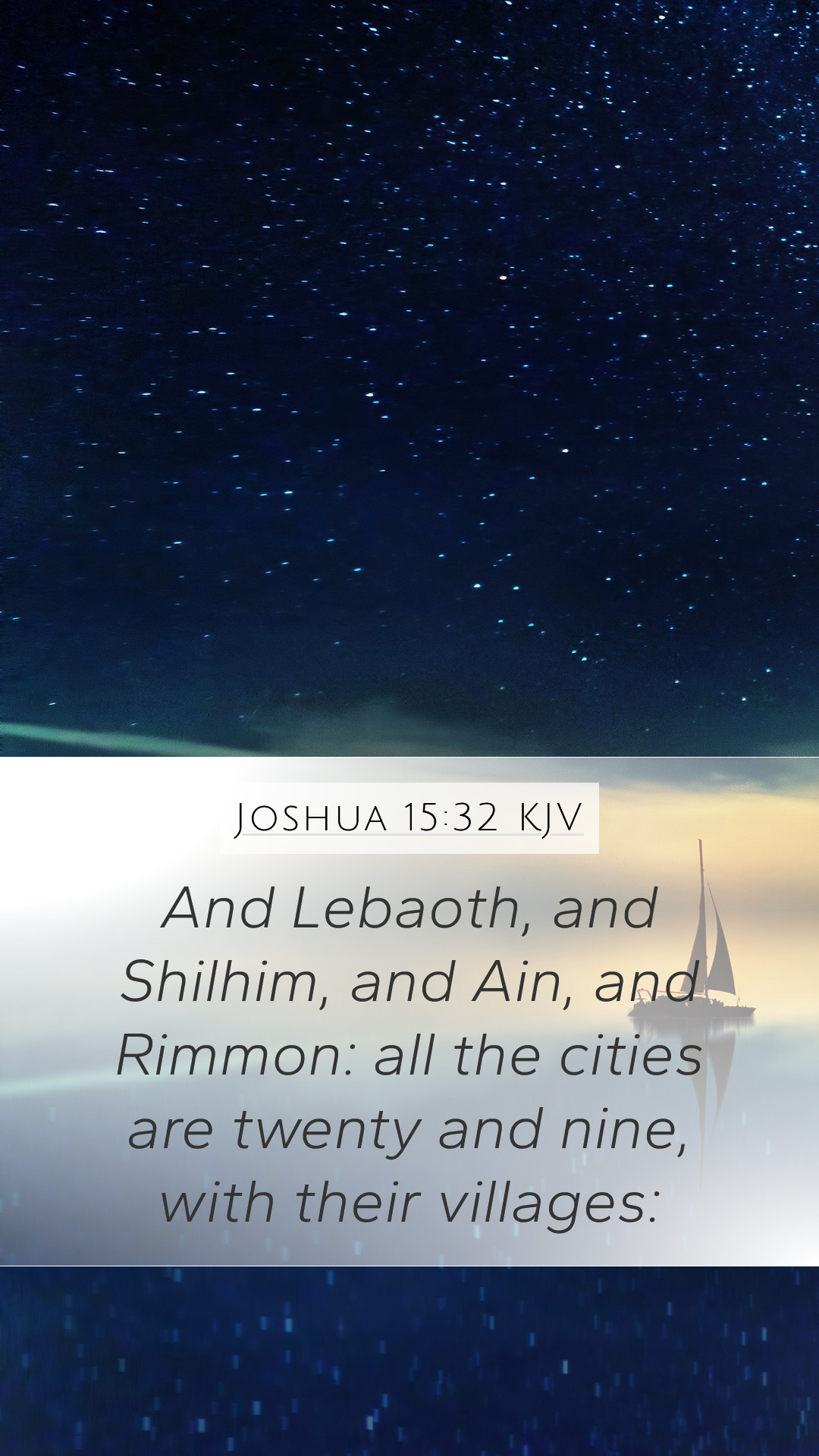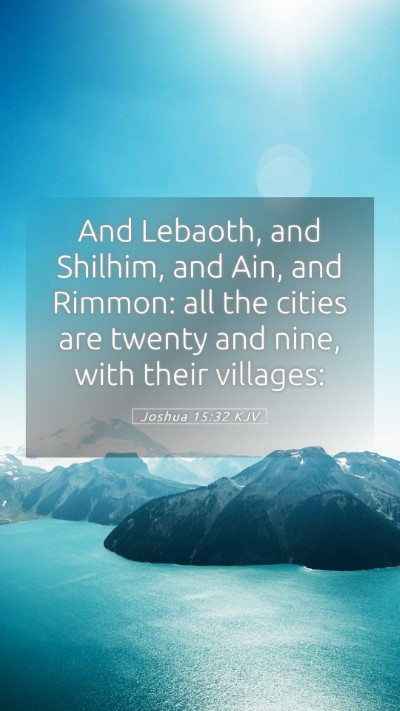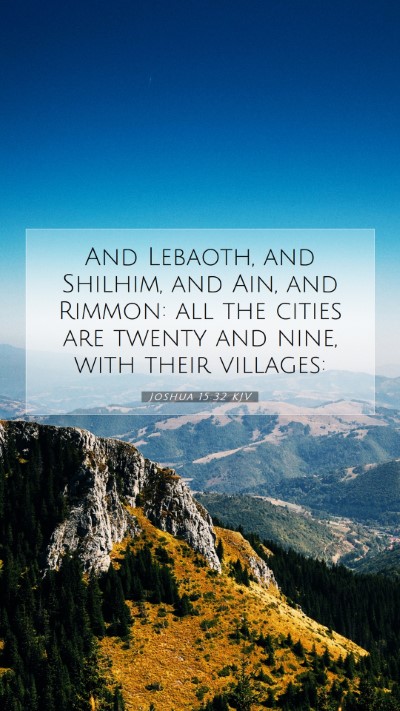Bible Verse Meaning and Commentary: Joshua 15:32
Verse Reference: Joshua 15:32 - "And in the low land, Eshtaol, and Zoreah, and Ashnah."
This verse is part of the broader narrative in the Book of Joshua, which outlines the division of the Promised Land among the tribes of Israel following their conquest of Canaan. Joshua 15 focuses specifically on the tribe of Judah and the territories allotted to them.
Summary and Analysis
The listing of towns in this verse serves multiple purposes in biblical exegesis. It conveys the geographical scope of Judah's inheritance and emphasizes God's faithfulness in fulfilling His promises to Israel.
Commentary Insights
- Matthew Henry's Commentary: Henry highlights the importance of the land as part of God's covenant, illustrating the fulfillment of divine promises. The mention of specific towns like Eshtaol and Zoreah underscores the meticulous planning and distribution of land among the tribes.
- Albert Barnes' Notes: Barnes provides insights into the significance of these towns, indicating that they held strategic importance. Eshtaol is noted for its agricultural potentials, while Zoreah may have served as a military outpost, showcasing Judah’s resourcefulness.
- Adam Clarke's Commentary: Clarke offers a perspective on the history of these locations, suggesting that they were pivotal in Israel’s development as a nation. He notes that various narratives in later books of the Bible will reference these cities, highlighting their enduring significance in the biblical narrative.
Understanding the Significance of Joshua 15:32
The verse is crucial for understanding how the land was divided and the fulfillment of God’s promises regarding the inheritance of Israel. This division provided the tribes with autonomy and established a sense of identity within the framework of their covenant relationship with God.
Application of the Verse
For modern readers, the verse offers insights into the importance of land and belonging in the context of covenant. It invites reflection on God’s faithfulness and the historical rootedness of faith traditions. Furthermore, understanding the historical and cultural context is essential when applying these lessons to contemporary life.
Cross References
- Numbers 34:2-3: God's commands regarding the land inheritance.
- Psalm 78:68-69: God's choice of the tribe of Judah and Zion as His dwelling place.
- Judges 1:34: The ongoing conquest and settlement of the land by the tribe of Judah.
Conclusion
In summary, Joshua 15:32 is more than just a geographical reference; it encapsulates profound theological truths about God’s promises, the identity of the Israelites, and the heritage of faith that is accessible to believers today. As such, engaging with this text through Bible study tools and resources can deepen one's understanding of Scripture and its implications for daily living.


